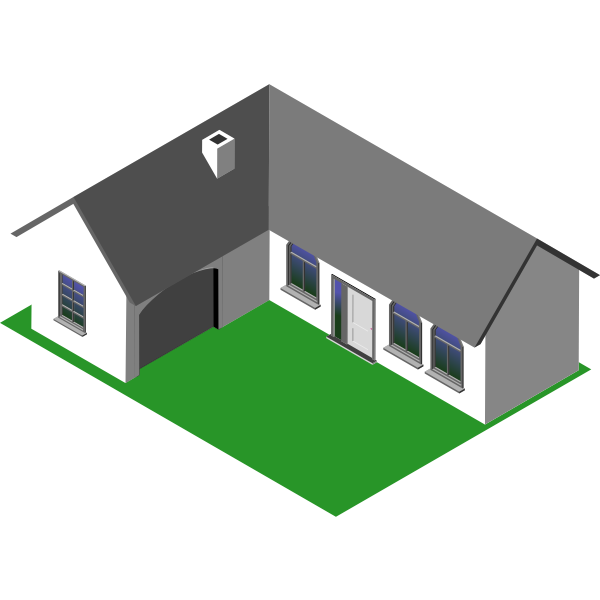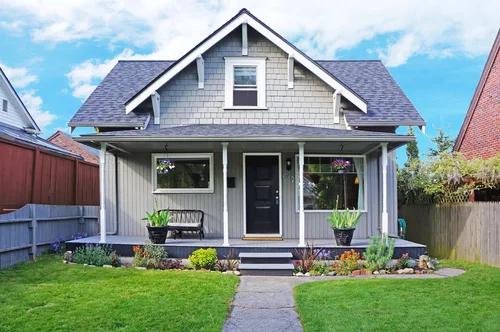Table of Content
▲ LUCKNOW: The Yogi Adityanath-led administration of Uttar Pradesh (UP) plans to change how property taxes are calculated in smaller cities and municipalities. This action attempts to boost tax revenue and self-sustainability for urban municipal governments.
 Different approaches to calculating property taxes: The remaining 199 nagar palikas (municipal councils) and 544 nagar panchayats (town councils) in Uttar Pradesh still use manual calculation techniques for tax and annual rental value assessment, despite 14 out of 17 nagar nigams (municipal corporations) in the state having already implemented GIS-based property tax calculation modules.
Since 2018, municipal organizations have improved their revenue collection by using GIS-based technology. The GIS-based calculating methodology will be deployed in all 17 corporations this fiscal year in an effort to significantly improve tax collection.
Nishith Rai, the director of the regional center for urban environmental studies in Lucknow, claims that by the end of this year, it is intended to promote tax reforms in nagar palikas with a population more than one lakh. This project will afterwards include more urban local bodies (ULBs).
Expected Increase in Revenue through GIS Technology: The urban development department expects that the implementation of GIS technology will boost its revenue by 2.5 times.
Different approaches to calculating property taxes: The remaining 199 nagar palikas (municipal councils) and 544 nagar panchayats (town councils) in Uttar Pradesh still use manual calculation techniques for tax and annual rental value assessment, despite 14 out of 17 nagar nigams (municipal corporations) in the state having already implemented GIS-based property tax calculation modules.
Since 2018, municipal organizations have improved their revenue collection by using GIS-based technology. The GIS-based calculating methodology will be deployed in all 17 corporations this fiscal year in an effort to significantly improve tax collection.
Nishith Rai, the director of the regional center for urban environmental studies in Lucknow, claims that by the end of this year, it is intended to promote tax reforms in nagar palikas with a population more than one lakh. This project will afterwards include more urban local bodies (ULBs).
Expected Increase in Revenue through GIS Technology: The urban development department expects that the implementation of GIS technology will boost its revenue by 2.5 times.
 Successful Implementation in Lucknow: Amrit Abhijat, the department's principal secretary, shared an example highlighting the new system's success in Lucknow. Within a year, the city experienced a 35% increase in property tax collection. In the financial year 2021-22, Lucknow municipal corporation collected Rs 282 crore, which rose to Rs 381 crore in 2022-23.
Plans to Raise Property Tax for Unregistered Commercial Properties: The department is contemplating increasing property tax slabs for commercial properties that are not registered with the tourism department.
Hotels, guest houses, and resorts that are not registered with the tourism department will be required to pay six times the annual rental value of the locality. On the other hand, registered establishments will be asked to pay three times the rental value.
Steps Toward Increased Revenue and Fairness: By implementing GIS technology and revising property tax slabs, the UP government aims to improve revenue collection, promote self-sustainability in urban local bodies, and ensure a fair taxation system.
Also Read: Income tax raids at premises linked to Hiranandani group concludes
Successful Implementation in Lucknow: Amrit Abhijat, the department's principal secretary, shared an example highlighting the new system's success in Lucknow. Within a year, the city experienced a 35% increase in property tax collection. In the financial year 2021-22, Lucknow municipal corporation collected Rs 282 crore, which rose to Rs 381 crore in 2022-23.
Plans to Raise Property Tax for Unregistered Commercial Properties: The department is contemplating increasing property tax slabs for commercial properties that are not registered with the tourism department.
Hotels, guest houses, and resorts that are not registered with the tourism department will be required to pay six times the annual rental value of the locality. On the other hand, registered establishments will be asked to pay three times the rental value.
Steps Toward Increased Revenue and Fairness: By implementing GIS technology and revising property tax slabs, the UP government aims to improve revenue collection, promote self-sustainability in urban local bodies, and ensure a fair taxation system.
Also Read: Income tax raids at premises linked to Hiranandani group concludes






_1771582392.webp)
_1771577585.webp)